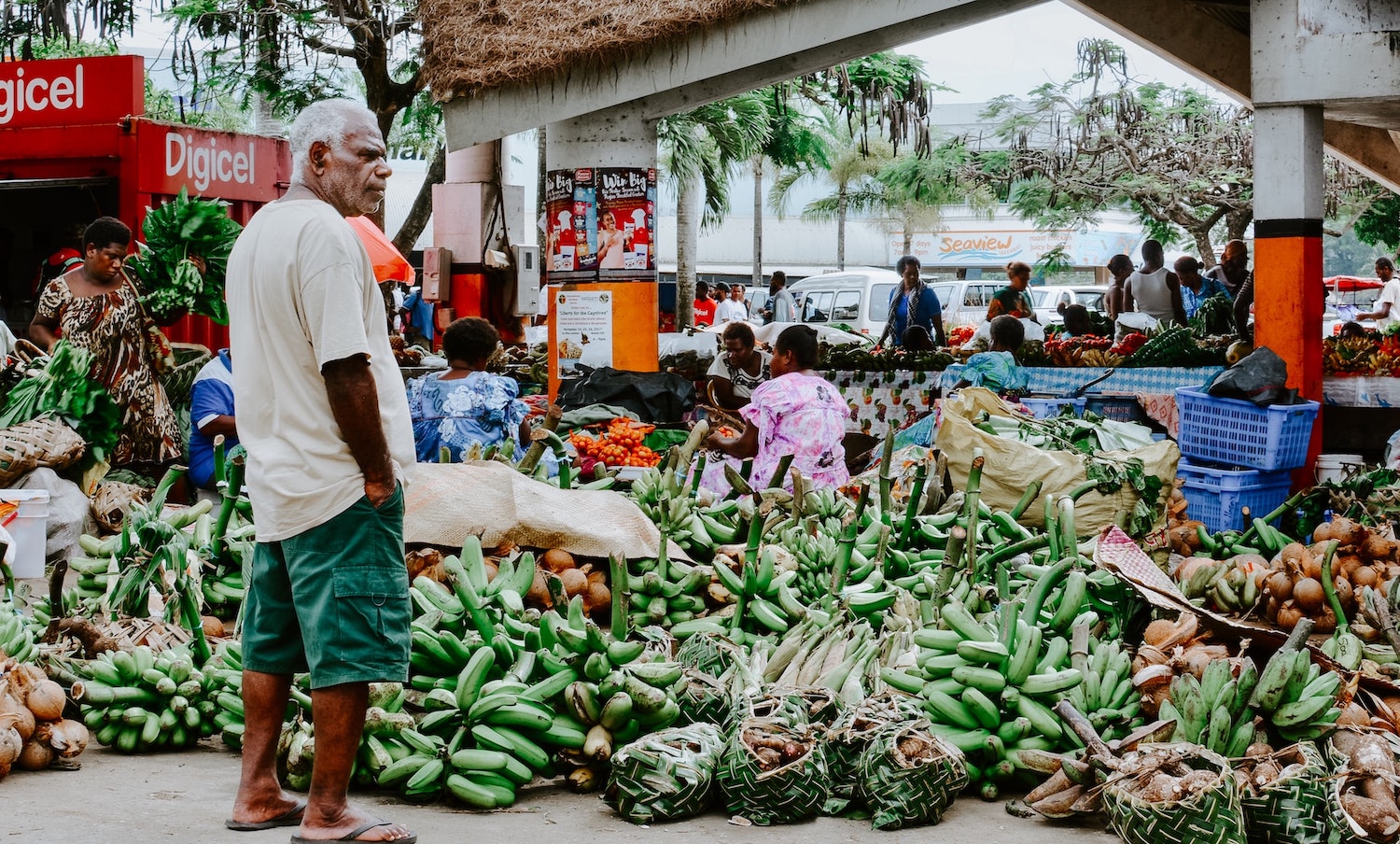
An oceanfront resort in in Iririki, Vanuatu.
"There is no future for us in fossil fuels." There’s nothing trite about these words uttered by Samoan climate activist Brianna Fruean. Whole countries are at risk of being swallowed by rising seas if swift and drastic action isn’t taken to slow the climate crisis. One of these nations — the South Pacific archipelago of Vanuatu — has stepped forward to hold the rest of the world accountable by petitioning for a non-proliferation treaty on fossil fuels.
Some may consider it a bold request on the part of a country with a population just over 320,000 and less than a billion (USD) in annual gross domestic product. But by continuing business-as-usual, the world’s carbon super-producers are sentencing small island developing states like Vanuatu to annihilation.
The islands of the South Pacific are particularly vulnerable to rising seas due to their low-lying positions. Kiribati, an atoll which lies less than two meters above sea level, is already "sinking" into the ocean and is projected to be the first country to disappear completely. Likewise, their neighbors in Samoa, Fiji, the Solomon Islands, the Maldives, the Marshall Islands and more are facing imminent destruction. None of these countries contribute greenhouse gases proportionate to the Big Five (the United States, China, Russia, India and Brazil), yet they stand to pay the ultimate price for climate change.
Together, the islands of the South Pacific contribute a mere 0.03 percent of global greenhouse gas emissions. On its own, Vanuatu is already considered carbon negative as its forests and and oceans sink far more carbon than it produces. But the tiny nation isn’t stopping there — its goals include converting to 100 percent renewable electricity by 2030 with the ultimate goal of phasing out almost all fossil fuels on the islands.
“We call for the development of a fossil fuel nonproliferation treaty to phase down coal, oil and gas production in line with 1.5C and enable a global just transition for every worker, community and nation with fossil fuel dependence,” Nikenike Vurobaravu, the president of Vanuatu, told the U.N. General Assembly on Saturday, referring to the global push to cap temperature rise at 1.5 degrees Celsius.

Vurobaravu also asked that the International Court of Justice give an opinion on whether there is a legal obligation to safeguard current and future generations from the climate crisis. While this request won’t likely generate restitution for the damage that has already been done, the hope is that it will amplify calls for help from countries stricken by climate disaster as well as bolster lawsuits on behalf of those seeking climate justice.
Michael Poland, the campaign director for the non-proliferation treaty, spoke with Climate Home News, saying: “Vanuatu has now built a growing coalition of more than 80 nations who are backing their call for an advisory opinion from the International Court of Justice. This initiative, and their call for a fossil fuel treaty, is part of their efforts in pushing for governments to pursue all legal avenues possible towards climate justice.” More than 65 cities and other governments are backing the treaty so far, as is the World Health Organization and, surprisingly, the Vatican.
Average sea levels rose 19 centimeters between 1901 and 2010, much of it due to melting sea ice in the Arctic. At the current rate of emissions, oceans are expected to rise another 24 to 30 centimeters by 2065 and up to 63 centimeters by the end of the century. Many parts of Kiribati will be gone by 2050. There is little time to act if Vanuatu and the islands of the South Pacific are going to be preserved.
Activist Brianna Fruean spoke to The Guardian in response to the proposed treaty. “They’ve heard the call from our youth that there’s no future for us in fossil fuels and listened. It’s time for other world leaders to do the same.” Kalo Afeaki, an activist based out of New Zealand, echoed her sentiment, also via The Guardian: “We need countries to be bold because we have run out of time. The future scares me … we need countries to endorse the fossil fuel nonproliferation treaty and we need them to do so now.”
Image credits: Monika MG and Adli Wahid via Unsplash

Riya Anne Polcastro is an author, photographer and adventurer based out of Baja California Sur, México. She enjoys writing just about anything, from gritty fiction to business and environmental issues. She is especially interested in how sustainability can be harnessed to encourage economic and environmental equity between the Global South and North. One day she hopes to travel the world with nothing but a backpack and her trusty laptop.














